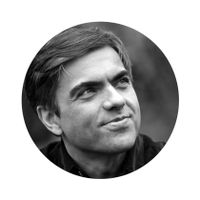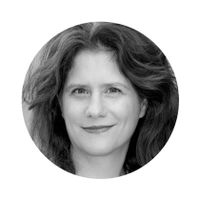An ocean of music can sink into one Lied. Sabine Bergk
Welcome to “Lied can Fly”, one of the first podcasts for contemporary art song worldwide. Nothing can touch our heart as deeply and intensely as a lied. It is a tiny art form, but it can easily travel through centuries.
I am deeply convinced about the importance of lied to our cultural conscience, to our well-being and mental health. A lied is like a tear, but it can be the drop that unfolds the ocean inside.
This podcast is created to bring special people together. It is also created to show that classical songwriting exists.
I believe that lied is important in a world of uncertainty. It can give us hope and be a ray of sunshine for everyday life.
I do not follow any dogmatic new music school. Lied doesn’t need dictatorship. It speaks directly to your heart.
A lied is small, but free.
I hope that you will enjoy my podcast. Let lied fly around the world to find you.
All episodes
No.15
Rainer Maria Rilke is celebrating his 150th Birthday on the 4th of December and, without thinking about Birthday parties, I recorded an interview with the German-British composer Tom Lane. Enjoy listening to this amazing poem about music itself, set into music.
No.14
Working together can become a blessing for a composer as well as a singer. If creating is a form of being, it becomes a present to ourselves. Sabine Bergk talks with Michael Finnissy and Lotte Betts-Dean about the creative process, of truly becoming the composition and about the blessing of existing together through music.
No.13
Discovering British Art Song is like taking turns and twists in undulating landscapes. Sabine Bergk talks with James Gilchrist and Nathan Williamson about the variety of the songs of Thomas Pitfield, an exceptional composer, poet, painter and peace activist (1903-1999). In Pitfield's songs, the beauty of the moment shines through delicate lines of shadows and light. In many songs, the poem and the composition originate from the same feather - Pitfield worked as his own singer songwriter, ahead of the times.
No.12
It remains a mystery how music appears and comes alive. In his song cycle "Blessed be", Michael Finnissy explores sensitively twisting and turning lines, shifting between Music's ancient roots and the 'moment of Now'. Magic seems to arise everywhere, if we open up our senses. The performers in ‘Blessed be 1’ are Lotte Betts-Dean, Valerie Wellbanks ('cello) and Olga Stezhko (piano).
No.11
Music can be part of the most challenging moments in our lives. Light and darkness, birth and death - with her CD "Enigma", Sarah Aristidou created a panorama of sounds and musical landscapes of our soul. Sabine Bergk talks with Sarah Aristidou about the "Lamento Turco" by Andreas Tsiartas.
No.10
Complexity culminates into tragedy in Dostoevsky's masterpiece "The Idiot" - and it might be nearly impossible to set it into music. With the "The letters of Nastasya Filippovna", Sidney Corbett reduced the drama to a maximum of intensity and obsession. If love might never be possible - beauty always is.
No 9
Romantic poetry has been attracting many composers with its musical colours. In his "Wiegenlied", Moritz Eggert picked a poem by Clemens Brentano to dive deeply into the dark moments of romanticism. Sabine Bergk talks with Moritz about lullabies in turbulent times. We wish you a wonderful Christmas!
No 8
Bird song and art song are very close, even though birds know better than we do. Judith Weir talks with Sabine Bergk about the refreshing and optimistic power of music. Welcoming the day, as it is written in Robert Bridges poem "Nightingales" - that Judith set into music in her song cycle "The Voice of Desire" - might be close to welcoming every moment in Zen Buddhism. Just one moment or even one chord can be more than you would ever think, if you start exploring it.
No 7
Dedicated to an English friend in the Cotswolds, Torsten Rasch wrote a song during the pandemic to brighten him up in his isolated life. Sabine Bergk talks with Torsten Rasch about the power of music in rough times - and about the attractiveness of English culture.
No 6
What is it all about to make music? Is it connected to the room, the musicians, the audience and what about performing a score? Sabine Bergk talks to Irene Kurka about Eva-Maria Houben's book "Musical Practice as a Form of Life".
No 5
In jungen Jahren von schwerer Melancholie eingenommen, schrieb der Dichter Ossip Mandelstam seinen ersten Gedichtband “Der Stein”. Fast durchgängig widmete die russische Komponistin Elena Firsova ihr musikalisches Schaffen Ossip Mandelstam und aus dieser Verbindung heraus entstand nicht nur ein vielfarbiges musikalisches Werk, sondern auch die CD “Bessonnitsa Insomnia - A Mandelstam Album”. Sabine Bergk spricht mit der Sopranistin Maacha Deubner über Elena Firsova, Ossip Mandelstam und die fragilen Linien zwischen Dichtung und Musik.
No 4
How strong is Schumann's influence on contemporary art song? The composer Moritz Eggert and Sabine Bergk talk about the Schumann phenomena, trying to dive deeply into his complexity and his endless inventions. Moritz assumes that Schumann is the beginning of modern music.
No 3
A love poem, a prayer, en empty space in the air - the composer Sidney Corbett and Sabine Bergk talk about complexity and clarity, loneliness, collaborations and the deep devotion to music. The poem "Malika" is by the Austrian poet Christoph W. Bauer.
No 2
Friendship and music are based on time. The composer Alexander Keuk and poet Sabine Bergk talk about the development of art, crossing ways in life and their song cycle about a tired but timeless sun.
No 1
If life was a white garden, every blossom in it would be like a blanc piece of paper. Poet and podcaster Sabine Bergk and composer Moritz Eggert talk about contemporary Lied production as a steady part of their life. Their mutual Lied "The White Garden", written for bassoon and voice, was initially thought as a birthday present for a friend. While Sabine has never seen the white garden of Vita Sackville-West she indicated in the poem, Moritz visited it.
Guests






